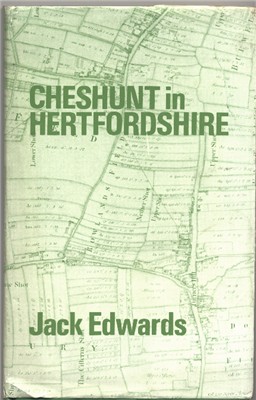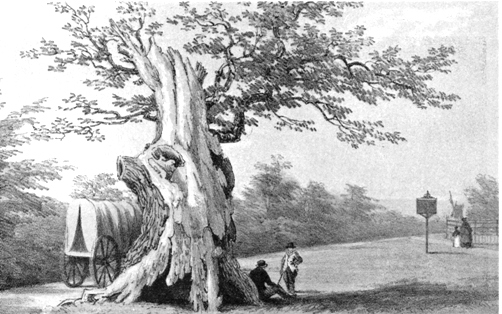|
|
Cheshunt in Hertfordshire Jack Edwards Cheshunt Urban District Council 1974 Hardback Book, 24.5 * 14 cm, 128 pages and fold-out map PART ONE-GENERAL HISTORY
|
 |
|
PART TWO-SOCIAL HISTORY
|
PART THREE-A PERAMBULATION OF THE DISTRICT
|

Goff's Oak and Cheshunt Common, circa 1843
Sample Extract
The seventeenth century saw the foundation of two local charity schools. Richard Hale founded his school at Hertford in 1617, and in 1640 Robert Dewhurst founded his free school for boys at Churchgate, Cheshunt. Robert Dewhurst was a lawyer, resident at the former Cheshunt Nunnery which had been purchased from Anthony Denny by his father, Barnard Dewhurst. Robert purchased land in Churchgate from Robert Dacres of Cheshunt Great House and built the school there in 1640. He handed over its management to trustees in 1642, three years before his death in 1645. Twelve trustees were appointed, and two farms were purchased near Saffron Walden, the income from which was used to maintain the school.
The purpose of the school was set out in the trust deed as follows:
"The school to remain for ever for the benefit of poor children of the parish for the teaching of them there to read English, so that they may know God the better, and also to write and cast accounts so that they may be better able to be apprenticed to some honest trade or mystery."
The schoolmaster was to be paid £20 per annum, and Dewhurst rather shrewdly stipulated that the curate of the parish may not be master. Twenty nobles were to be given to each boy apprenticed, and he also left money in trust for providing bread and coals for the inmates of the almshouses in Turners Hill. .... [See Dewhurst School, Cheshunt]
Locating Books
At the time this page was last updated second hand copies were available onlinePage updated July 2007
